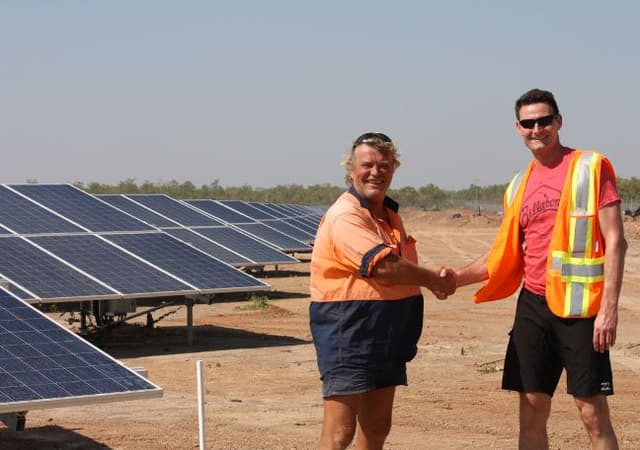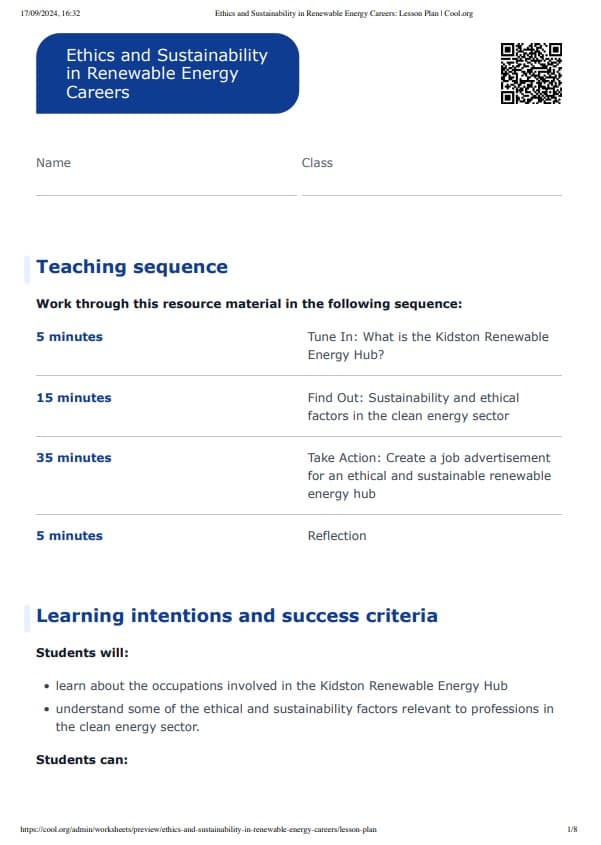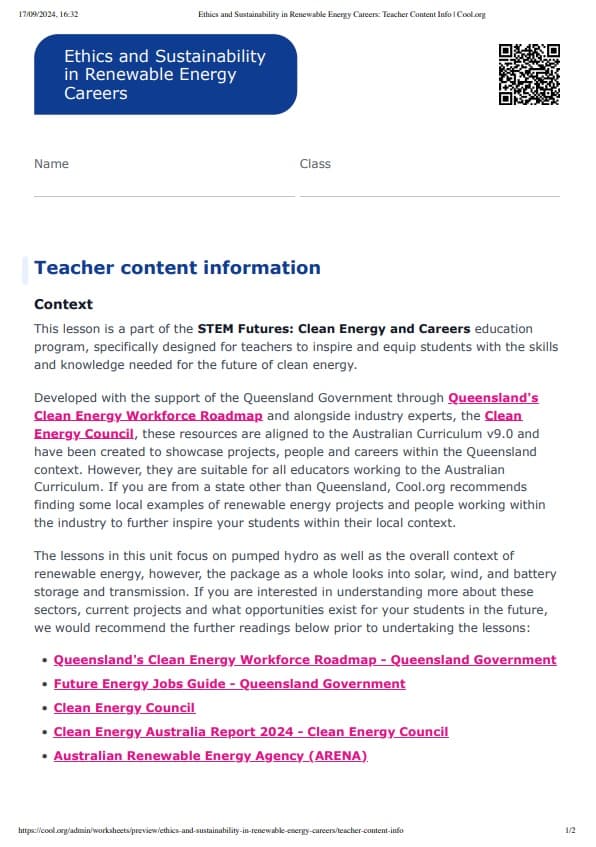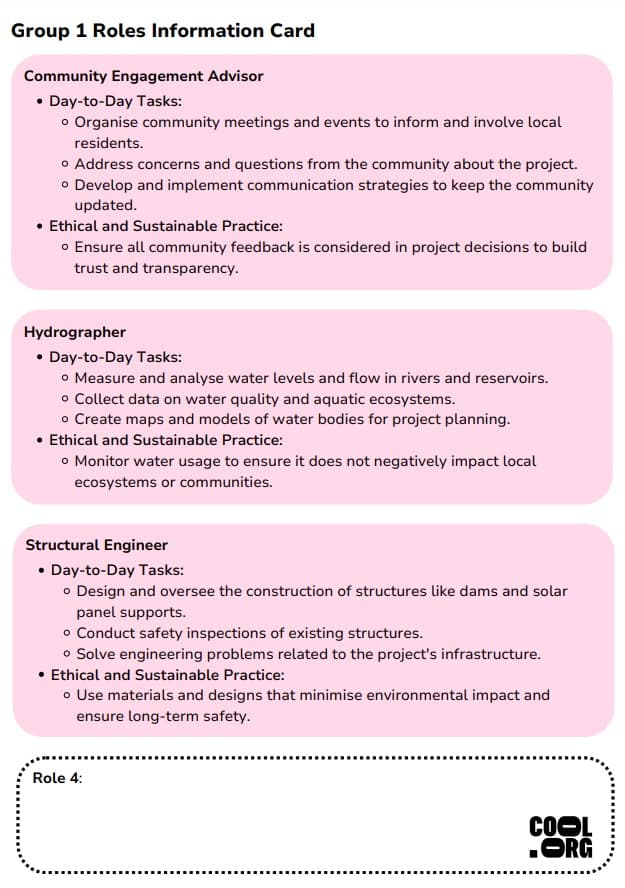Learning intentions:
Students will...
- explore occupations involved in the Kidston Renewable Energy Hub
- understand some of the ethical and sustainability factors relevant to professions in the clean energy sector.
Success criteria:
Students can...
- investigate roles in the clean energy sector
- outline some of the ethical and sustainability responsibilities for jobs in the clean energy sector
- present job roles in the clean energy sector.



